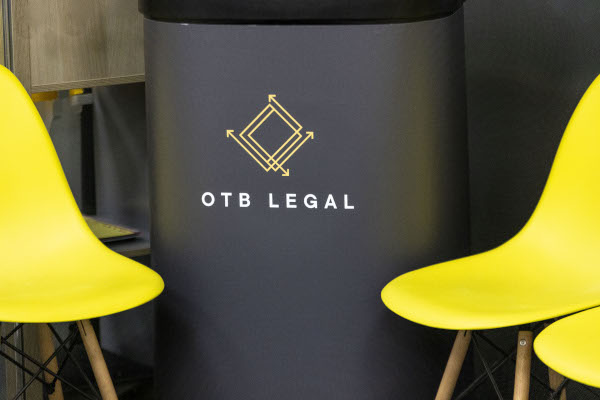We are often contacted by US citizens living outside the UK enquiring about their eligibility for British citizenship, mostly based on British ancestry. Eligibility can be confirmed in two ways. It could be that an applicant is eligible to register as a British citizen, when they are not automatically British but eligible to become British by way of application, or it may be that the applicant is already British but does not yet know it.
British citizenship is an attractive option for many US citizens as the UK permits dual citizenship and a British passport allows an unrestricted right to live in the UK. This post aims to summarise the main ways in which US citizens could register as British citizens, taking into account various changes in the law that have taken place in recent years to remedy historical legislative unfairness. It is not intended to be an exhaustive list and we recommend getting in touch should you like us to carry out a status trace for you (details below!).
Background on British Citizenship for US Citizens
British nationality law today is governed by the British Nationality Act 1981, which was introduced on 1 January 1983 and has been amended a number of times since then. Under the Act in force today, British citizenship can only normally be passed on for one generation born abroad (by descent), aside from some limited circumstances.
Prior to 1983, the relevant legislation was the British Nationality Act 1948, introduced on 1 January 1949. Under the previous Act, Citizenship of the UK & Colonies (which was then the equivalent of British citizenship) could be passed on by descent not only to a first generation born abroad (automatically), but also to a second generation born abroad in a ‘foreign’ country if the birth was registered at a UK consulate within one year. A ‘foreign’ country as defined by the previous Act included the USA but did not (for example) include Commonwealth countries such as Canada, Australia and New Zealand. However, at that time, and indeed until more recently, British nationality could only be passed down the male line.
Scenario 1 – birth in the US between 1949 and 1982 to a UK born maternal grandfather
This scenario relies on the following circumstances:
- Your maternal grandfather was born in the UK
- Your mother was born outside of the UK (to parents married to each other)
- You were born between 1 January 1949 and 31 December 1982
- You were born in a country that was classified as a ‘foreign country’ by the British Nationality Act 1948. This includes the USA.
One discriminatory feature of the 1948 Act is that citizenship could only be transmitted via the male line. This means that if your maternal grandfather was born in the UK and your mother was born outside of the UK (whilst married), your mother would have been born British by descent but potentially denied the chance to register your birth at the British consulate in the US. Legislation is now in place to remedy previous gender discrimination and allows registration in these circumstances.
Scenario 2 – birth in the US between 1949 and 1987 to a UK born maternal grandmother
This scenario builds on the example above:
- Your maternal/paternal grandmother was born in the UK
- Your grandfather (married to the grandmother in question) was born outside of the UK
- The relevant parent was born outside of the UK
- You were born between 1 January 1949 and 31 December 1987
- You were born in a country that was classified as a ‘foreign country’ by the British Nationality Act 1948. This includes the USA.
In this example gender discrimination prevented the grandmother from passing on her citizenship to a parent born outside of the UK. If this scenario applies to you then it means that your parent would not have been able to register your birth at the British consulate in the US because they would have unfairly been denied citizenship. Again, an application to register as British may be possible in these circumstances.
Scenario 3 – birth in the US between 1949 and 1982 to a British subject father who married before 1 January 1949
This scenario relies on the following conditions being met:
- Having a paternal grandfather born in the UK
- Having a father that was born outside of the UK before 1949, which would have made him a British subject by descent
- Your parents married before 1 January 1949
- Your mother was born outside of the UK and was not a British subject before marriage
- You were born outside of the UK between 1 January 1949 and 31 December 1982
If the conditions above are met then you may be able to register as a British citizen. This is because prior to 1949, a woman who married a British subject herself became a British subject. She would then have been reclassified as a Citizen of the UK & Colonies in 1949 and then as a British citizen otherwise than by descent from 1983. Citizenship otherwise than by descent can be passed on to a further generation born abroad, although this would not have happened automatically before 1983 due to the gender discrimination outlined above. In this scenario the applicant would also not have been able to inherit citizenship from their father as the father was British by descent. However, under modern nationality law there is a possibility that a registration application could be made.
Scenario 4 – birth in the US after 1983 to a British parent by descent with three years of residence in the UK prior to the birth
As outlined at the start of this article, under modern nationality law British citizenship can only be passed on for one generation born overseas aside from some limited circumstances. However, there are some provisions for registration of children as British citizens in the legislation in place from 1 January 1983. One scenario in which this is possible is an application under section 3(2) of the British Nationality Act 1981. The requirements for such an application are as follows:
- The applicant is born outside of the UK
- One of the parents is British by descent
- The father or mother of the parent in question was British otherwise than by descent
- The parent in question was in the UK for three years before the applicant’s birth and was absent from the UK for fewer than 270 days across the three year period
This application must be made whilst the applicant is still a minor. However, it may still be possible to make an application relying on these provisions if you were denied the chance to register under section 3(2) as a child because of gender discrimination. The example below sets out how this may be possible:
- You have a grandmother born in the UK
- Your grandfather was born outside of the UK
- The relevant parent was born outside of the UK
- The relevant parent lived in the UK for at least three years prior to your birth (before being able to obtain British citizenship themselves)
- You were born outside of the UK on or after 1 January 1983
In this scenario your parent would have been denied British citizenship by gender discrimination and therefore unable to register you under section 3(2). Please note that this example relies on the parent having accrued three years of residence in the UK. It is not enough to speculate that they would have moved to the UK had gender discrimination not been present.
British Citizenship for US Citizens Conclusion
Every set of circumstances are different and the examples above are provided to illustrate the scenarios in which registration may be possible. It is important to note that each of the provisions above generally rely on the relevant parent still holding British citizenship at the time of the applicant’s birth, unless this was not possible because of historical legislative discrimination. If you have British born grandparents and believe that you may be eligible to register as British based on one of the provisions above, it is strongly recommended that you seek legal advice before making an application, so please contact us for advice based on your circumstances.
At OTB Legal we offer an initial consultation in which you can outline your enquiry to us. Once we have provided you with an initial assessment we are then able to provide further advice and assistance with submitting your application. If you think you may be eligible, please get in touch with us as we would be delighted to help you make a successful application.

Contact Us
Not quite ready to book an appointment yet or unsure if it’s the right step for you? No worries! We understand that making decisions regarding legal matters can be daunting.
Reach out to our Client Care Manager, Rikki, who will be more than happy to assist you and guide you in the right direction.
Your peace of mind matters to us, and we’re here to support you every step of the way. Contact Rikki today for personalised guidance and assistance.

